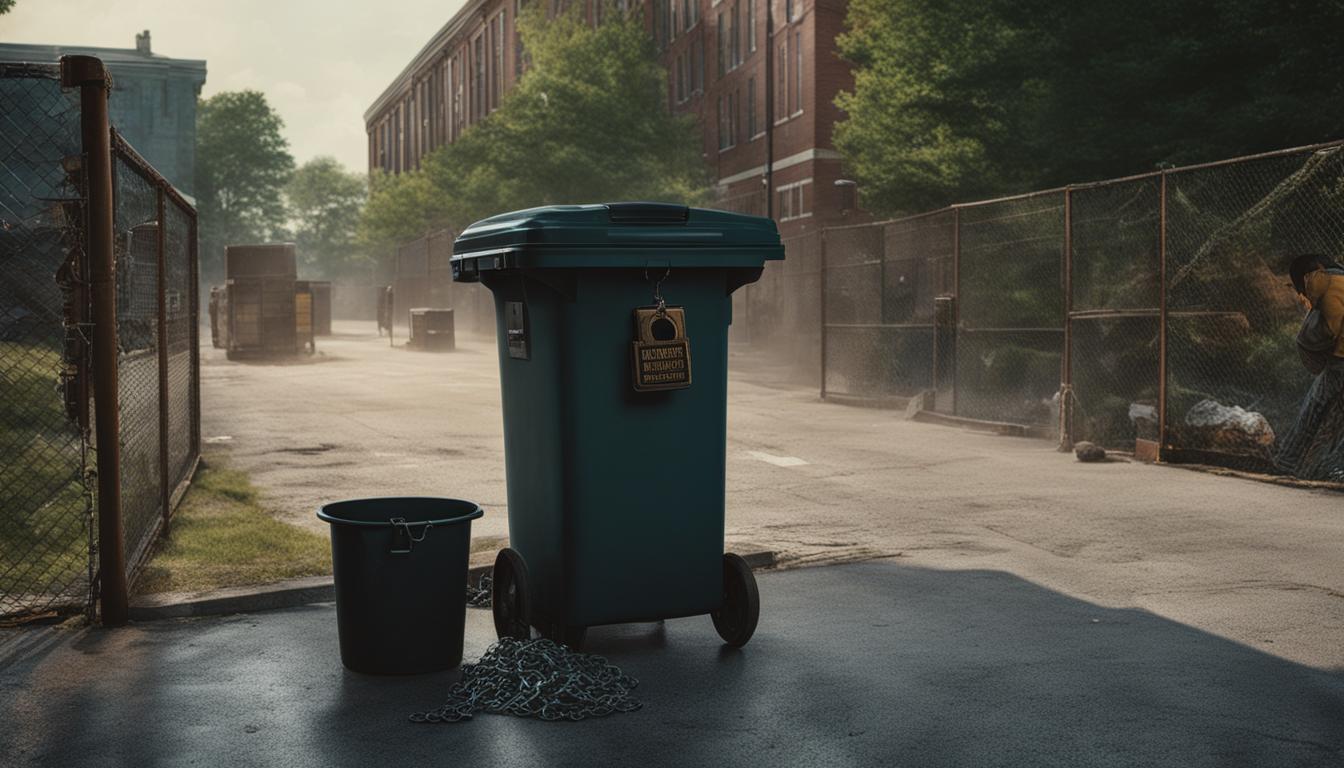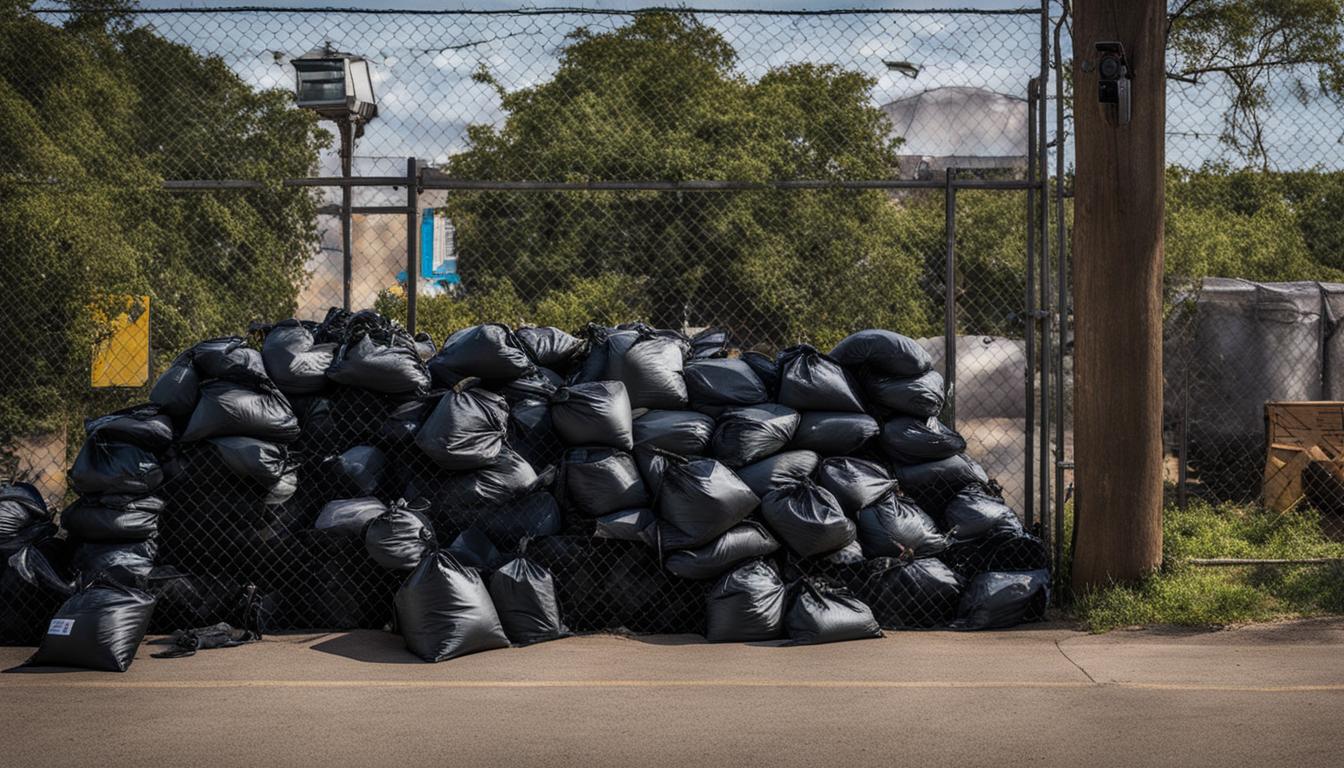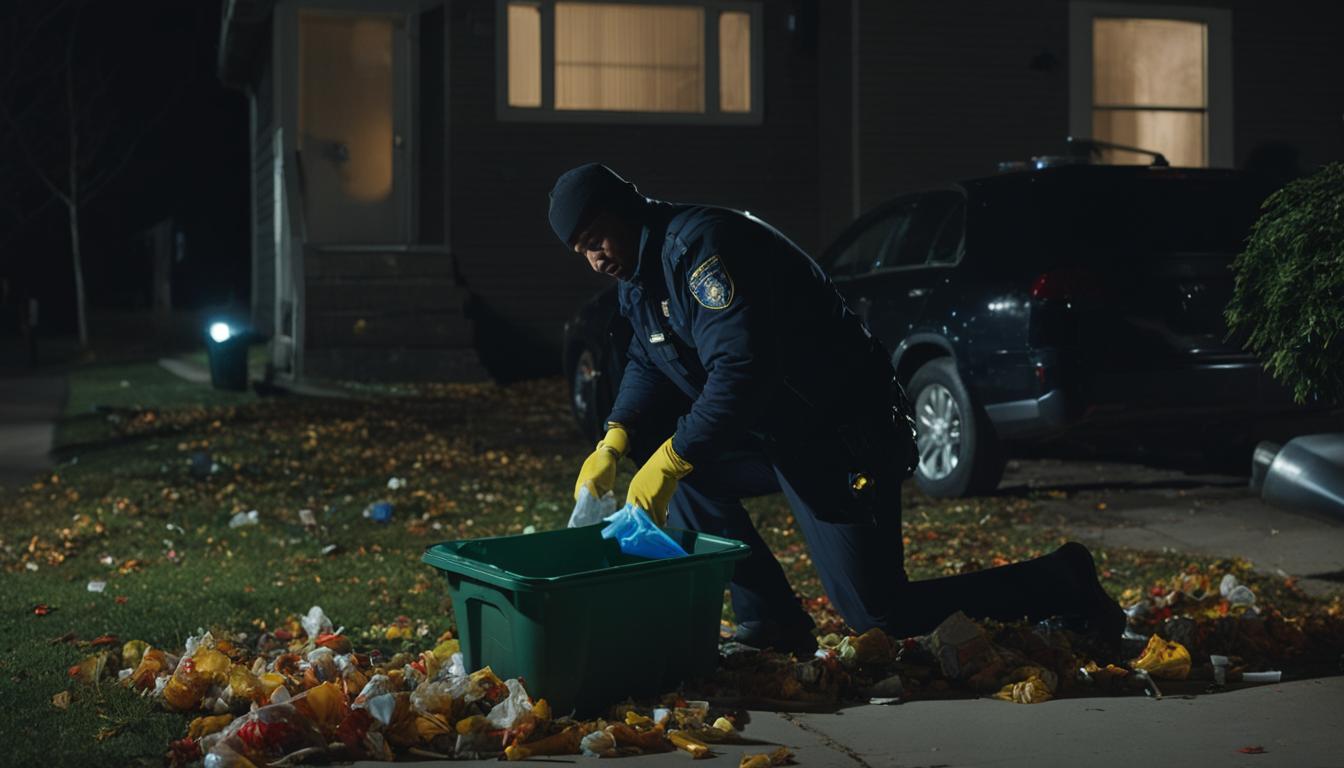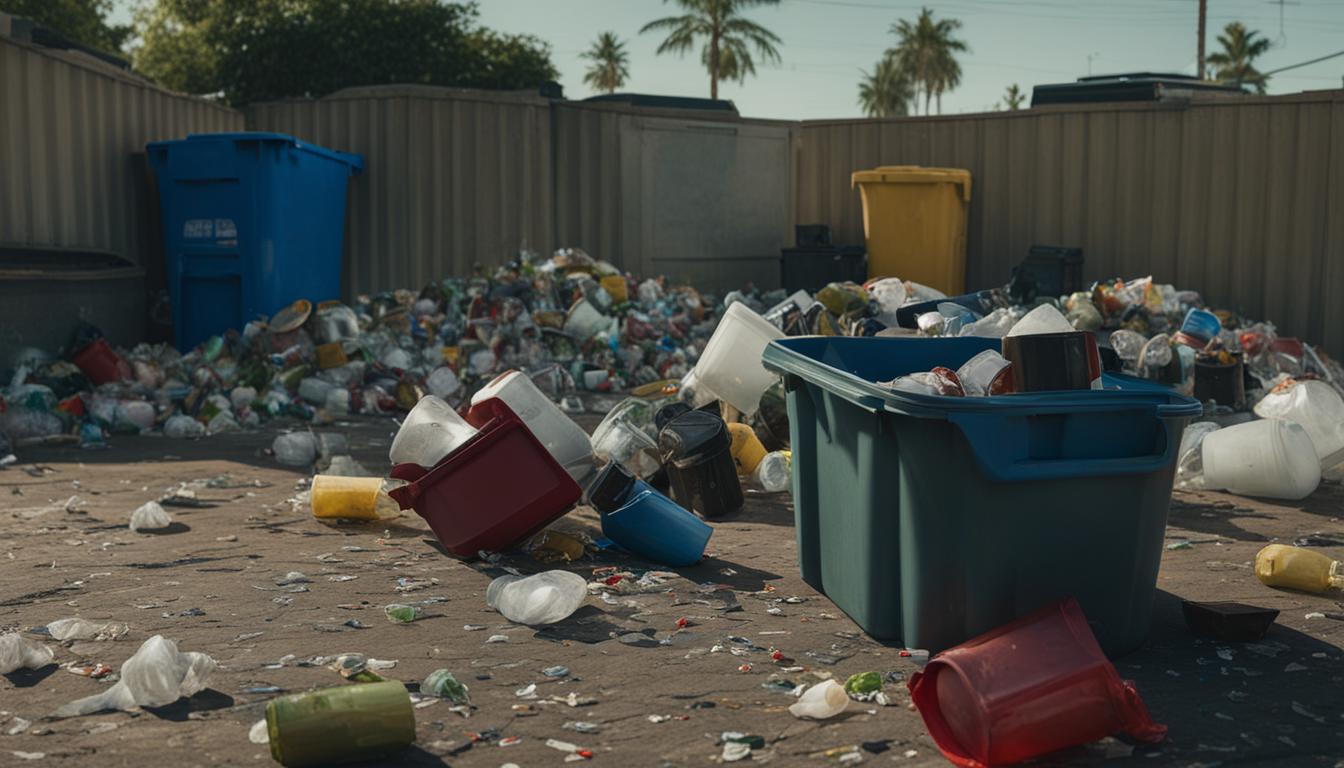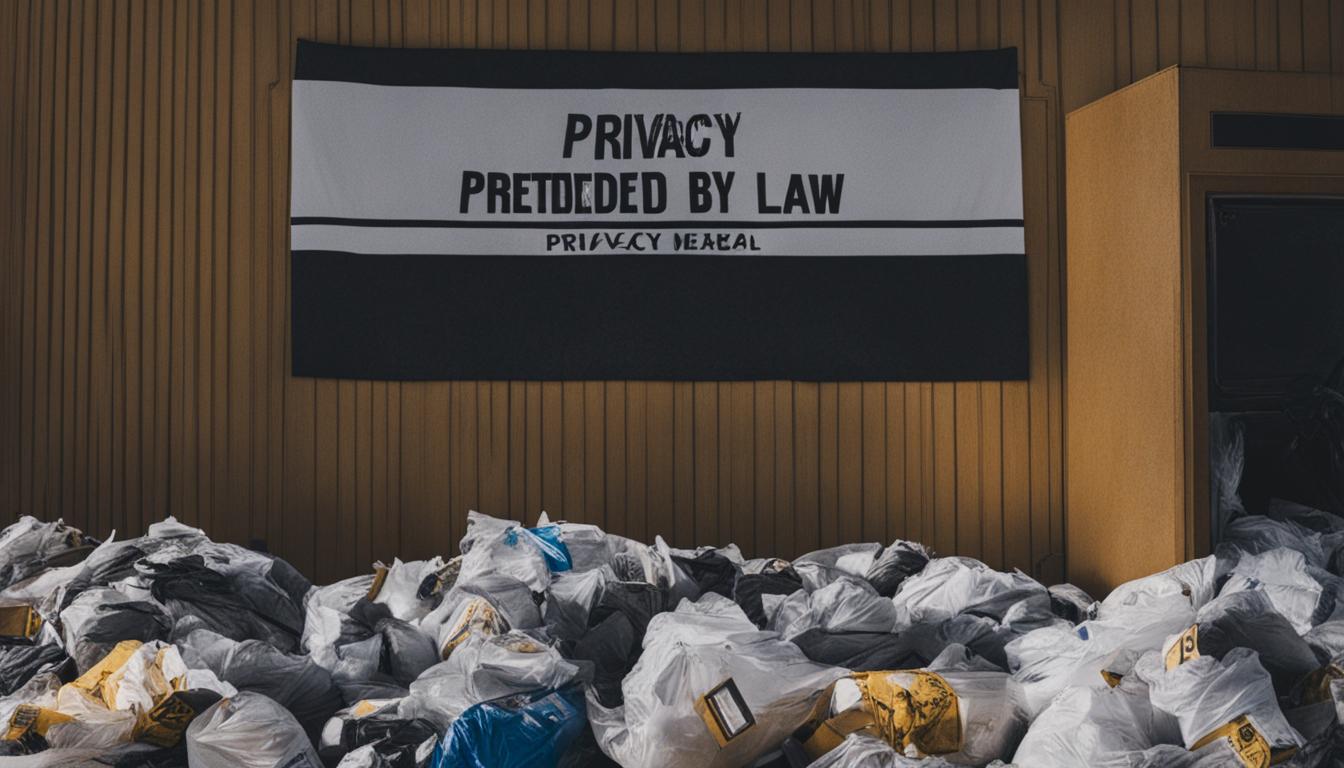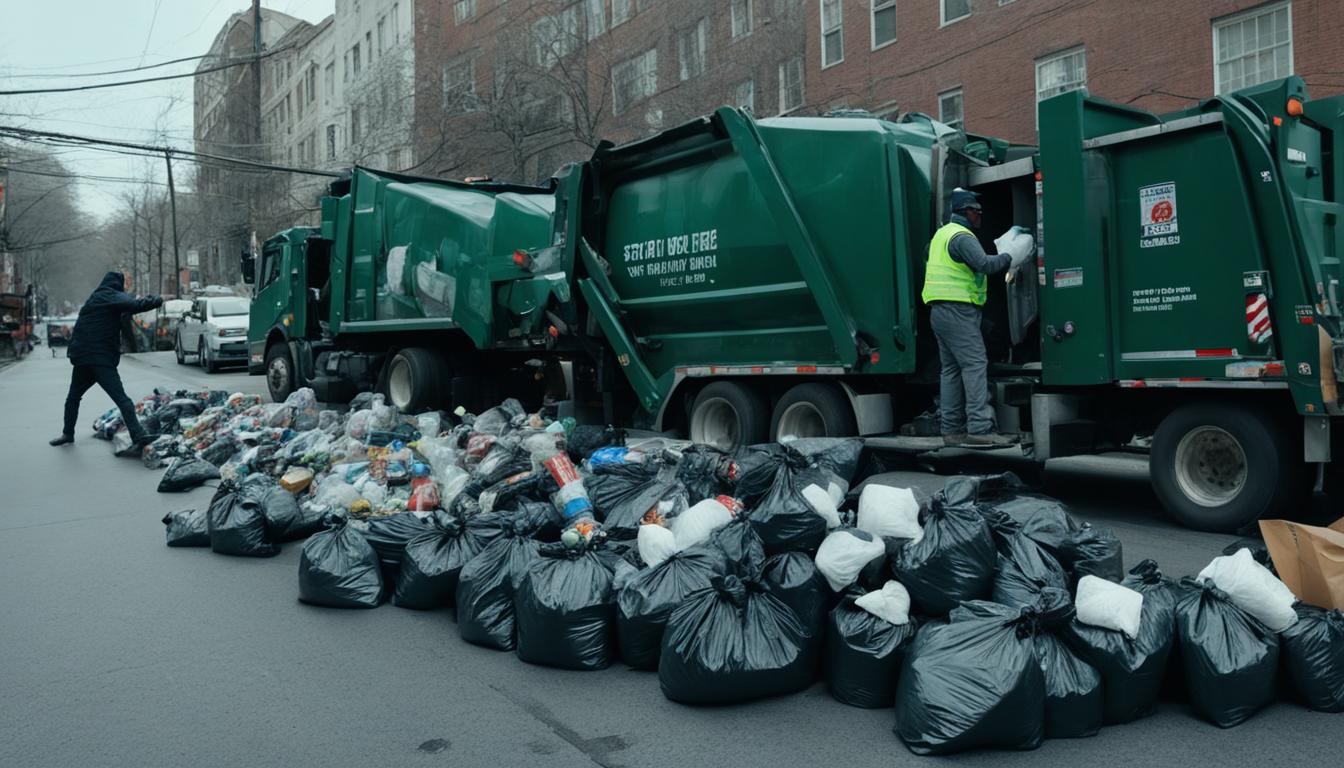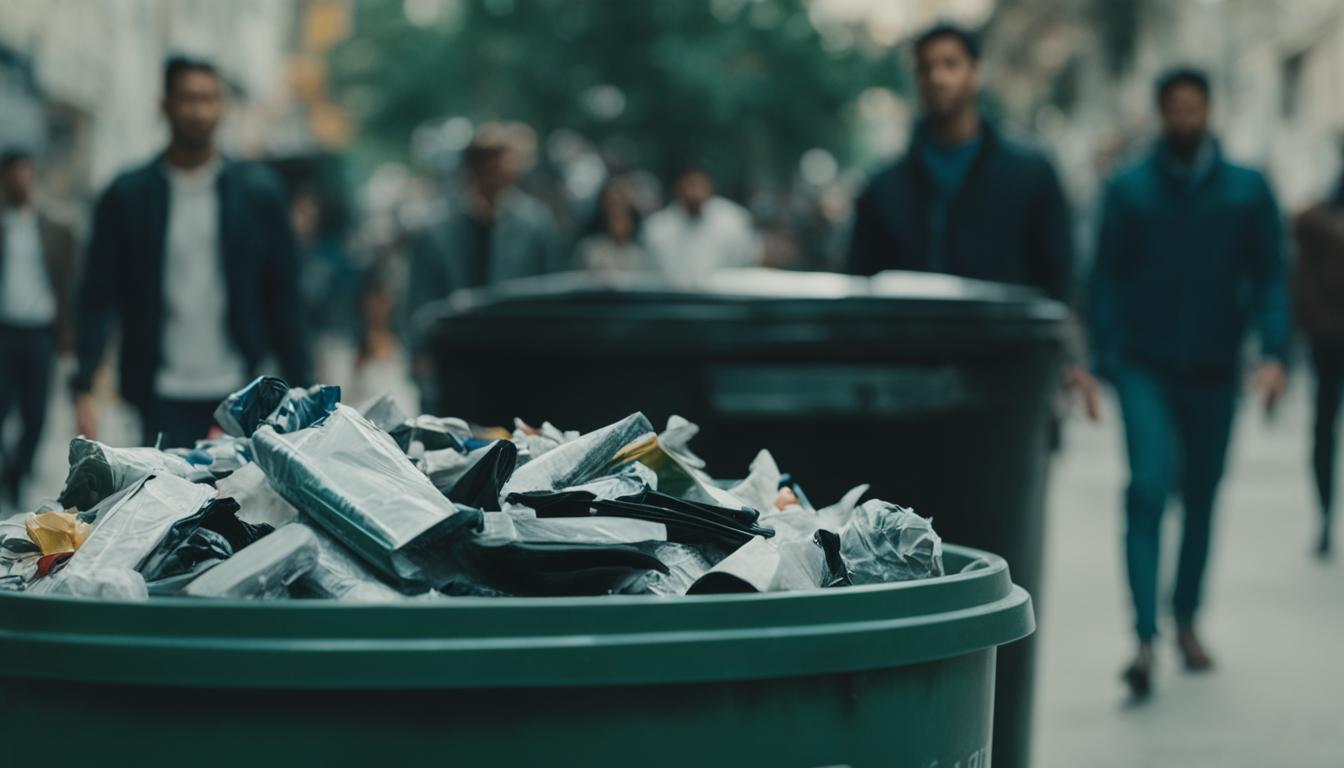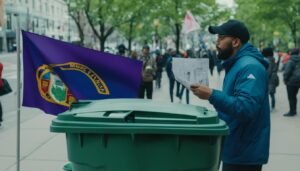Disclosure: This Post Contains Affiliate Links; We earn a commission on purchases.
When it comes to the privacy of your trash in Massachusetts, you may be wondering what rights you have and whether it is legal for someone to go through your discarded items. Understanding the laws and regulations surrounding trash inspection in the state is important for residents to protect their privacy rights and ensure compliance with local ordinances.
In Massachusetts, it is generally legal for someone to go through the contents of other people’s garbage. Unless there is a specific ordinance against it in your city or town, individuals are free to pick through the bins on your curb as long as they are not violating any posted signage or trespassing. While some municipalities have considered fines for taking people’s recycling, there is no record of these fines being implemented.
Key Takeaways:
- Generally, it is legal for someone to go through your trash in Massachusetts unless there is a specific ordinance against it in your city or town.
- Individuals can pick through the bins on your curb as long as they are not violating any posted signage or trespassing.
- Some municipalities have considered fines for taking people’s recycling, but there is no record of these fines being implemented.
Dumpster Diving Regulations in Massachusetts
Dumpster diving, or searching through dumpsters for discarded items, is not illegal in Massachusetts. However, it is important to obtain permission before diving into dumpsters on private property, such as businesses and residential areas. Dumpster diving on public property, such as when someone leaves their garbage for pickup on the sidewalk, does not require permission. However, it is still necessary to be aware of any “No Trespassing Signs” and to avoid any illegal activities related to dumpster diving.
While dumpster diving is generally legal, it is essential to respect property rights and exercise caution. Obtaining permission before accessing dumpsters on private property helps prevent trespassing and potential conflicts. Additionally, it is crucial to be mindful of any illegal activities associated with dumpster diving, such as stealing or damaging property.
When engaging in dumpster diving, it is important to remember that just because something is discarded does not mean it is free for the taking. It is essential to adhere to the laws and regulations governing theft, property rights, and trespassing. Respecting these guidelines ensures a responsible approach to dumpster diving and fosters positive interactions within the community.
The Importance of Permission and Legal Awareness
Obtaining permission from property owners before diving into dumpsters on private property is crucial to avoid any legal issues or conflicts. It is recommended to reach out to businesses or residents and request permission before searching through their discarded items. This respectful approach not only ensures compliance with the law but also promotes positive relationships and community cohesion.
“Dumpster diving is a unique activity that can yield valuable finds, but it is crucial to remember that legality and respect for others’ property are paramount. Always seek permission, be mindful of any regulations, and avoid engaging in any illegal activities while dumpster diving.”
| Pros of Dumpster Diving | Cons of Dumpster Diving |
|---|---|
|
|
Understanding the pros and cons of dumpster diving helps individuals make informed decisions when engaging in this activity. While there are benefits such as reducing waste and finding valuable items, it is essential to consider the potential legal and ethical concerns, as well as the risks associated with encountering hazardous materials. Respecting property rights and maintaining a responsible approach is crucial in balancing these factors.
Massachusetts Privacy Laws Regarding Trash Disposal
In Massachusetts, there are no specific laws that protect individuals’ privacy rights when it comes to trash disposal. Once garbage is placed on the curb for pickup, it is generally considered to be in the public domain. However, individuals still have the right to control access to their property, so it is important to respect any posted signage or indications of private property.
While there is no legal expectation of privacy for garbage left outside, it is essential to understand that people still have the right to control who enters their property or goes through their trash bins. Respecting personal boundaries and property rights is crucial in maintaining positive community relationships.
If you live in Massachusetts and want to maintain your privacy, it is advisable to take preventive measures, such as shredding documents with sensitive information and considering alternative disposal methods for items that could compromise your privacy. Taking extra precautions can help in safeguarding your personal information and reducing the risk of potential privacy breaches.
Maintaining Privacy Rights
To preserve your privacy rights in trash disposal:
- Ensure that your trash bins are secured and inaccessible to unauthorized individuals.
- Avoid placing sensitive documents or items that contain personal information directly in the trash. Consider using a secure disposal method, such as a shredder or taking them to a designated recycling facility.
- Be cautious of sharing personal information that could be used for identity theft or fraud.
- If you suspect that your privacy has been violated, contact local authorities to report any incidents.
“Respecting the privacy rights of individuals is crucial in maintaining a safe and harmonious community. While Massachusetts may not have specific laws protecting privacy in trash disposal, it is important for everyone to be mindful and respectful of others’ personal boundaries.”
By staying informed about your rights regarding privacy and trash disposal, you can make informed decisions to protect your personal information. While Massachusetts privacy laws may not provide comprehensive protection in this context, individuals can still take proactive steps to safeguard their privacy.
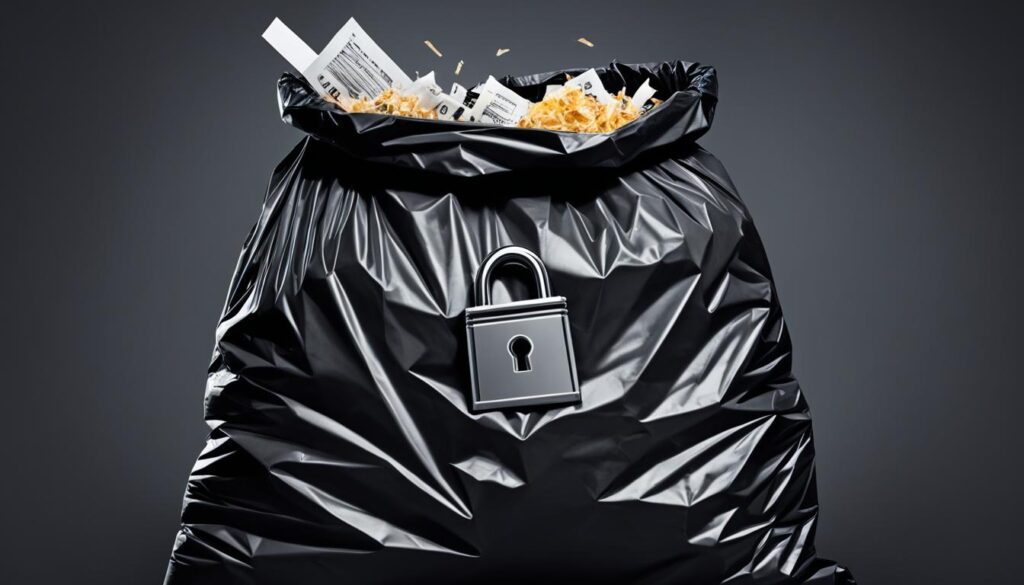
Potential Consequences of Illegal Trash Digging in Massachusetts
While going through someone else’s trash may not be illegal in Massachusetts, there are potential consequences if someone engages in illegal activities, such as trespassing or violating posted signage. These consequences may include charges of disorderly conduct, illegal dumping, littering, or even criminal charges depending on the severity of the offense. It is important to exercise caution and respect property rights when engaging in any activities related to trash digging.
Consequences of Illegal Trash Digging
| Offense | Potential Consequences |
|---|---|
| Trespassing | Fines, imprisonment, or both |
| Violating Posted Signage | Fines or penalties |
| Disorderly Conduct | Fines, imprisonment, or both |
| Illegal Dumping | Fines, imprisonment, or both |
| Littering | Fines or penalties |
Engaging in illegal trash digging activities can have serious legal consequences. Trespassing on private property without permission is a violation of the law and can result in fines, imprisonment, or both. Similarly, violating posted signage indicating that an area is off-limits can lead to fines or penalties. Additionally, if someone’s actions are deemed disorderly or if they engage in illegal dumping or littering, they can face fines, imprisonment, or both.
It is crucial to respect property rights and exercise caution when engaging in any activities related to trash digging. By doing so, individuals can avoid legal repercussions and ensure they are acting within the confines of the law.
Guidelines for Responsible Trash Disposal in Massachusetts
While Massachusetts does not have specific laws regarding privacy rights in trash disposal, it is essential to follow guidelines for responsible waste management. Properly separating and disposing of recyclable materials is crucial to minimize environmental impact and promote sustainability. Compliance with recycling regulations set by your city or town is required to ensure the effective management of waste. Additionally, individuals should be mindful of not creating excessive waste or causing harm to the environment when disposing of their trash.
Recycling Regulations in Massachusetts
Massachusetts has implemented recycling regulations to encourage the proper handling and disposal of recyclable materials. These regulations vary by city or town and may include guidelines on sorting and separating recyclables, as well as designated collection methods. By adhering to these regulations, individuals can contribute to a cleaner and greener environment for future generations.
Waste Disposal Guidelines
In addition to recycling, it is important to follow waste disposal guidelines to ensure the safe and proper management of non-recyclable waste. Some general waste disposal guidelines include:
- Bagging and sealing waste to prevent leakage and odors
- Properly disposing of hazardous materials through designated channels
- Utilizing designated garbage disposal systems and bins
- Avoiding the disposal of prohibited items
By following these guidelines, individuals can contribute to maintaining a clean and healthy environment while also complying with local waste disposal regulations.
| Recycling Regulations | Waste Disposal Guidelines |
|---|---|
| Sort and separate recyclables | Bag and seal waste to prevent leakage and odors |
| Comply with designated collection methods | Properly dispose of hazardous materials |
| Refer to city or town guidelines | Utilize designated disposal systems and bins |
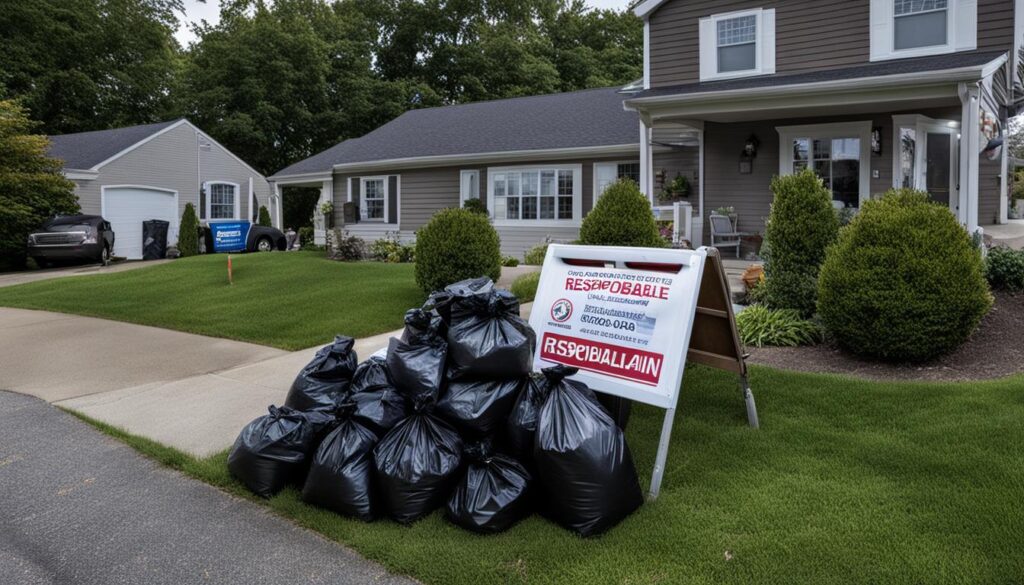
Importance of Being Informed About Trash Inspection Laws
Understanding the laws and regulations surrounding trash inspection in Massachusetts is crucial for residents to protect their privacy rights and ensure compliance with local ordinances. By being well-informed, individuals can make educated decisions about their waste disposal practices and exercise their rights if they believe their privacy is being violated.
Knowledge is power, especially when it comes to garbage inspection laws. Massachusetts residents should familiarize themselves with the legal framework to safeguard their privacy rights and understand the limits of trash accessibility.
Garbage inspection laws vary from state to state, and Massachusetts is no exception. Being aware of these regulations empowers individuals to navigate the intricate landscape of waste management while preserving their privacy.
Beyond Trash: Protecting Your Privacy
Trash privacy rights extend beyond the mere act of disposing of waste. Understanding the legal boundaries can help residents adopt measures to safeguard other aspects of their privacy.
- Secure Document Disposal: Knowing the privacy laws surrounding trash disposal can guide individuals in protecting sensitive information. By disposing of documents securely, Massachusetts residents can reduce the risk of identity theft and maintain their privacy.
- Personal Information Protection: Trash inspection laws help residents recognize the potential privacy risks associated with personal belongings disposed of in their trash. Being mindful of these laws allows individuals to take precautions, such as shredding credit card statements or removing personal identifying information before discarding items.
- E-Security: Electronic waste disposal poses its own set of challenges. Being informed about trash inspection laws can help Massachusetts residents understand the proper disposal methods for electronic devices, protecting their personal data from unauthorized access.
Empowering Residents with Knowledge
Knowledge is the key to exercising rights and making informed choices. By understanding garbage inspection laws, Massachusetts residents can navigate this complex landscape confidently and take necessary action if their privacy rights are violated.
Trash privacy rights are an essential part of individual liberties. Informing individuals about these laws empowers them to protect their privacy and advocate for stronger legislation.
To assist Massachusetts residents in staying informed, here is a summary of key garbage inspection laws:
| Law/Regulation | Summary |
|---|---|
| Massachusetts General Laws, Chapter 93H | Requires businesses and organizations to implement measures for protecting personal information when disposing of it, including sensitive data contained in physical records. |
| Massachusetts Department of Environmental Protection | Provides guidelines and resources for proper waste management and disposal, including information on recycling, hazardous waste, and electronic waste. |
| Local Municipal Ordinances | Certain municipalities may have specific ordinances governing trash inspection and disposal. Residents should consult their local government or waste management authorities for specific regulations. |
By keeping abreast of these laws and regulations, Massachusetts residents can actively protect their privacy rights and advocate for stronger measures to safeguard their personal information.
Conclusion
In conclusion, individuals in Massachusetts have the legal right to go through someone else’s trash, as long as they are not violating specific ordinances or trespassing on private property. Dumpster diving is also legal, but it is essential to respect property rights and seek permission before diving into dumpsters on private premises. Although there are no specific laws protecting privacy rights in trash disposal, individuals still have the right to control access to their property. Therefore, it is crucial to be well-informed about trash inspection laws and guidelines in order to ensure responsible waste management and protect privacy rights.
Understanding the legality of waste disposal and dumpster diving is vital to navigate the boundaries established by Massachusetts laws. While privacy rights in trash disposal are not specifically protected, residents can exercise their right to control access to their property through posted signs and indications of private property. Being aware of local ordinances and guidelines for responsible waste disposal helps residents maintain a respectful and compliant approach to managing their trash.
By keeping up-to-date with trash searching laws and regulations, individuals can make informed decisions about their waste disposal practices while safeguarding their privacy rights. Responsible waste management, including proper recycling and avoiding excessive waste, is not only a legal obligation but also contributes to protecting the environment. Ultimately, everyone has a role to play in ensuring a cleaner and more sustainable future.
Source Links
- https://live959.com/is-it-illegal-from-someone-to-go-through-your-trash-in-massachusetts/
- https://wnaw.com/is-it-legal-to-rumage-through-someones-garbage-in-massachusetts/
- https://malegislature.gov/Laws/GeneralLaws/PartIV/TitleI/Chapter270/Section16

Subscribe to Our Newsletter

